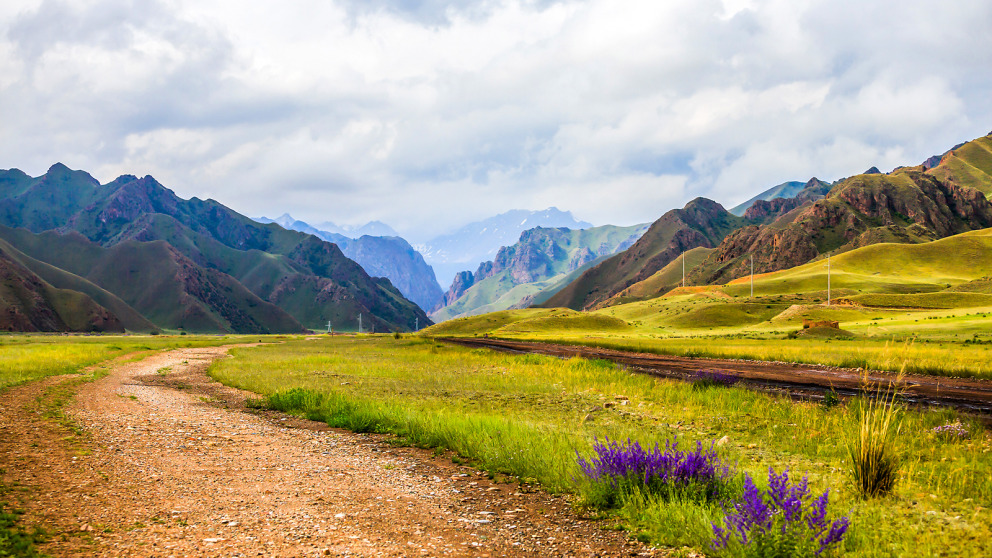Towards a post-Covid-19 new development paradigm: The Planetary Health solution
14.04.2020

By Nicole de Paula (IASS) and Stefanos Fotiou (Director, Environment and Development, United Nations ESCAP)
This article was first published on 13 April, 2020, on the United Nations ESCAP blog.
Humans are intrinsically connected to the natural environment. This fundamental truth has been neglected by the way we conceive our development choices and we implement policies. The Covid-19 pandemic is an unfortunate reminder. Occurrence of diseases that cross over from wildlife to human populations (zoonotic diseases) are increasing and highlight how human health, animal health, and natural ecosystems are one. The current crisis shows us that we’ve lost a necessary symbiotic relation between humans and their natural environment. We, humans, are not separate from nature. We are nature.
Restoring the relationship between people and nature requires a new development paradigm that respects the limits of our natural systems. The concept of planetary health provides a framework to materialize such development paradigm.
Planetary Health is both a growing scientific field and a social movement. The term gained force when the Rockefeller Foundation–Lancet Commission on planetary health published the landmark report “Safeguarding human health in the Anthropocene epoch”. In simple terms, this commission defines planetary health as “the health of human civilization and the state of the natural systems on which it depends”.
At the core of planetary health is the belief that humans will stay healthy only if they conduct their economic activities within the physical limits that ensure the health of ecosystems. In many ways planetary health provides an overarching narrative for the post-Covid-19 development paradigm.
Several fronts are needed to be mobilized to safeguard our environment and consequently improve human health. To recognize that planetary health solutions goes beyond the healthcare system and ecosystem management, there is a need for breaking institutional silos and privilege systems thinking. From a set of dozens of concrete actions that can contribute to this objective we highlight here three concrete low hanging fruits that could unleash the power of the SDGs and of the planetary health narrative. None of these three actions require new technologies, new mechanisms or even new financial resources. They just need a change of mindset and prioritization on the development of public policies and regulatory frameworks.
Take nature into account. The concept of natural capital is well embedded in the theoretical framework of sustainable development, but it is nowhere to be found when theories are translated into fiscal and monetary policies. At all levels of public and private budgeting and design of fiscal measures, nature and the services provided by ecosystems should be part of the decision-making process. And this should not be limited only (if at all) in the monetization of natural assets but mostly on using the physical capacity of ecosystems as an intrinsic parameter to i) validate the costs and benefits of the fiscal and monetary policies and; ii) frame the overall capacity of the financial systems.
Invest in planetary health leaders to cross-pollinate knowledge across sectors. There is one misconception that might compromise long-term solutions for this pandemic and that is the belief that health solutions are found only inside hospitals. While reinforcing health care systems and supporting health workers are necessary conditions, they are not sufficient for a long-term focus on human health. To ensure a smooth transition in the post-pandemic world, decision makers must expand their understanding of the social, environmental, and commercial determinants of health and involve all disciplines and experts on designing health systems as well as ecosystem conservation and restoration plans.
Stop harmful environmental practices and the subsidies that still support them. Highly polluting activities are dominating our economy and many of them are still heavily subsidized, resulting inter alia on degradation of the natural environment. Our addiction to fossil fuels is literally killing us. Air pollution from burning fossil fuels kills over 7 million people every year. In addition, brain and pulmonary damages have been directly attributed to the negative impacts of fossil fuels. A study from the Health and Environment Alliance (HEAL) reveals that on average, in G20 countries, the health costs associated with emissions from fossil fuels are over six times higher than the subsidies. Other harmful subsidies like on fisheries are destroying ecosystems and compromise the nutritional budgets and livelihoods of the poor. Deforestation and encroachment are making us more vulnerable to diseases. They also decrease the capacity of the environment to absorb shocks of disasters and maintain its physical protective functions. Air pollution may even increase chances of death when pandemics hit and certainly adds billions if not trillions of burdens in public budgets.
The world is struggling to win a battle against an invisible enemy. Planetary Health is about winning a war to all current and future crises. The Covid-19 pandemic gives a change to reboot our engines and address root causes of our unsuitable development paradigm. More than a band-aid, we will need an organ transplant to adjust our brains and mindsets to fix the root causes of the Covid-19 pandemic, which were well known but not addressed preventively.
Political leaders respond to social pressures and it will take all of us to shape the future we want. The SDGs have a powerful call: leave no one behind. In times of disruption, our needs become more visible and it is easy to let the superfluous go. Implementing a resilient post-Covid-19 development paradigm goes beyond a focus on technocratic solutions. Above all, we need a powerful political vision and a strong social movement to co-create and implement the planetary health development paradigm.
